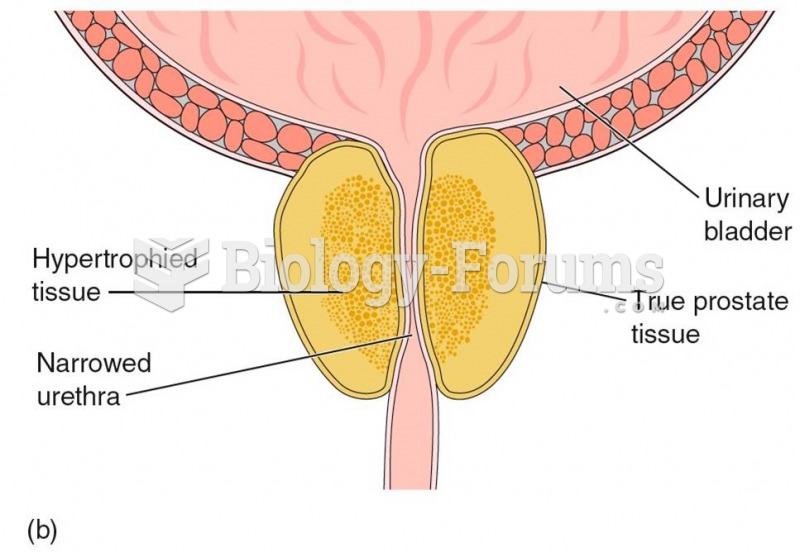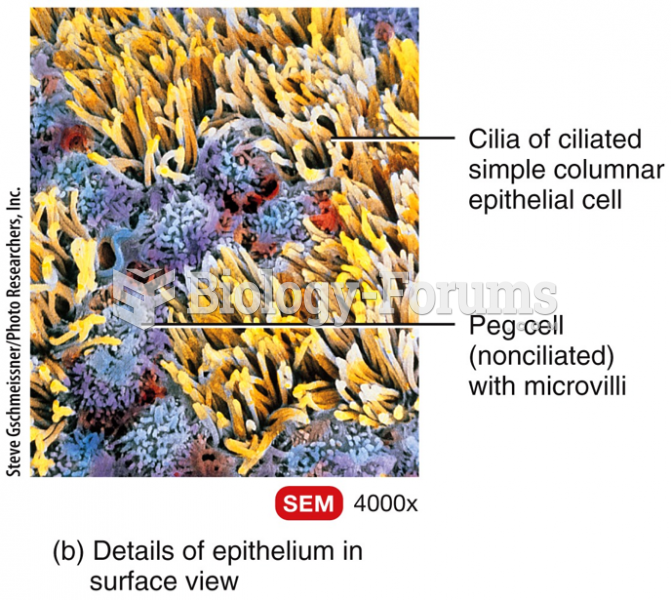|
|
|
The average human gut is home to perhaps 500 to 1,000 different species of bacteria.
Medication errors are more common among seriously ill patients than with those with minor conditions.
About 100 new prescription or over-the-counter drugs come into the U.S. market every year.
Patients who have been on total parenteral nutrition for more than a few days may need to have foods gradually reintroduced to give the digestive tract time to start working again.
Stevens-Johnson syndrome and Toxic Epidermal Necrolysis syndrome are life-threatening reactions that can result in death. Complications include permanent blindness, dry-eye syndrome, lung damage, photophobia, asthma, chronic obstructive pulmonary disease, permanent loss of nail beds, scarring of mucous membranes, arthritis, and chronic fatigue syndrome. Many patients' pores scar shut, causing them to retain heat.







